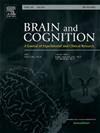拖延症和情绪调节的功能连接。
IF 1.4
3区 心理学
Q3 NEUROSCIENCES
引用次数: 0
摘要
拖延是一种非理性的延迟预期行动的行为,会在许多生活领域导致许多不良影响,如学习成绩低下、心理健康状况不佳和经济窘迫等。以往的研究表明,情绪调节与拖延之间存在很大的负相关。然而,情绪调节与拖延之间关联的神经基础仍不清楚。因此,我们采用了基于体素的形态测量(VBM)和静息态功能连接(RSFC)方法来探索情绪调节如何导致拖延的神经基底(N = 243)。结果与我们的假设一致,情绪调节能力与拖延之间存在显著的负相关。此外,VBM 分析表明,情绪调节能力与右侧背外侧前额叶皮层(dlPFC)的灰质(GM)体积呈正相关。中介分析显示,情绪调节能力中介了右侧前额叶皮质灰质体积与拖延之间的关系。此外,RSFC结果表明,右侧dlPFC-左侧岛叶功能连接与情绪调节能力呈正相关。情绪调节能力进一步介导了右侧大脑前区-左侧脑岛功能连接与拖延症之间的关系。目前的研究结果表明,与认知控制厌恶情绪相关的神经通路可能是情绪调节与拖延之间密切关系的原因,这为解释情绪调节与拖延之间的紧密联系提供了一个新的视角。本文章由计算机程序翻译,如有差异,请以英文原文为准。
Functional connectivity in procrastination and emotion regulation
Procrastination, an irrational delay of intended action, leads to numerous adverse effects in many life domains, such as low academic performance, poor mental health, and financial distress. Previous studies have revealed a substantial negative correlation between emotional regulation and procrastination. However, the neural basis for the association between emotion regulation and procrastination remains unclear. Therefore, we employed the voxel-based morphometry (VBM) and resting-state functional connectivity (RSFC) methods to explore the neural substrates underlying how emotion regulation is responsible for procrastination (N = 243). In line with our hypothesis, the results showed a significant negative correlation between emotion regulation ability and procrastination. Additionally, the VBM analysis showed that emotion regulation ability was positively correlated with gray matter (GM) volumes in the right dorsal-lateral prefrontal cortex (dlPFC). The mediation analysis revealed that emotion regulation ability mediated the relationship between the GM volumes of the right dlPFC and procrastination. Furthermore, the RSFC results indicated that right dlPFC-left insula functional connectivity was positively associated with emotion regulation ability. Emotion regulation ability further mediated the relationship between the right dlPFC-left insula functional connectivity and procrastination. The current findings suggest that the neural pathway related to cognitive control over aversive emotion may be responsible for the close relationship between emotion regulation and procrastination, which provides a novel perspective for explaining the tight association between emotion regulation and procrastination.
求助全文
通过发布文献求助,成功后即可免费获取论文全文。
去求助
来源期刊

Brain and Cognition
医学-神经科学
CiteScore
4.60
自引率
0.00%
发文量
46
审稿时长
6 months
期刊介绍:
Brain and Cognition is a forum for the integration of the neurosciences and cognitive sciences. B&C publishes peer-reviewed research articles, theoretical papers, case histories that address important theoretical issues, and historical articles into the interaction between cognitive function and brain processes. The focus is on rigorous studies of an empirical or theoretical nature and which make an original contribution to our knowledge about the involvement of the nervous system in cognition. Coverage includes, but is not limited to memory, learning, emotion, perception, movement, music or praxis in relationship to brain structure or function. Published articles will typically address issues relating some aspect of cognitive function to its neurological substrates with clear theoretical import, formulating new hypotheses or refuting previously established hypotheses. Clinical papers are welcome if they raise issues of theoretical importance or concern and shed light on the interaction between brain function and cognitive function. We welcome review articles that clearly contribute a new perspective or integration, beyond summarizing the literature in the field; authors of review articles should make explicit where the contribution lies. We also welcome proposals for special issues on aspects of the relation between cognition and the structure and function of the nervous system. Such proposals can be made directly to the Editor-in-Chief from individuals interested in being guest editors for such collections.
 求助内容:
求助内容: 应助结果提醒方式:
应助结果提醒方式:


